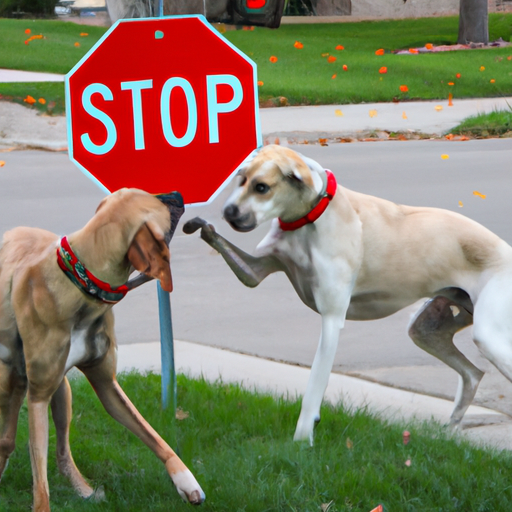As a dog owner, you’ve probably seen your dogs engage in what appears to be a harmless friendly tussle. But what starts as innocent play can sometimes escalate into something more serious. It’s crucial to understand how to stop dogs from play fighting with each other to prevent any potential harm.
In this article, we’ll explore the ins and outs of dog play fighting, when it becomes concerning, and the steps you can take to keep these situations under control.
Table of Contents
- Understanding Dog Play Fighting
- Recognizing When Play Turns Serious
- Steps to Stop Dogs from Play Fighting
- Training Techniques to Prevent Play Fighting
- Frequently Asked Questions
Key Takeaways:
- Play fighting among dogs is natural but can escalate to real fights if not monitored.
- Recognizing signs of aggression is crucial in preventing serious fights.
- Training and socialization techniques can help deter dogs from harmful play fighting.
Understanding Dog Play Fighting
Play fighting is a common behavior among dogs. It helps them learn social skills, burn off energy, and strengthen bonds. It might be alarming at first glance, but it’s often harmless and part of their natural behavior.
However, while play fighting is normal, it is essential to keep an eye out for any signs of aggression or discomfort. Sites like OneTopDog provide excellent resources to help you understand and manage your dog’s behavior.
Recognizing When Play Turns Serious
Recognizing when play fighting turns serious can be challenging, especially for inexperienced dog owners. Here are some signs to look out for:
- Body Language: Dogs engaging in play will often have relaxed body language. If their body becomes rigid, ears are pinned back, or the tail is held high and stiff, these could be signs of aggression.
- Vocalization: Growling during play is normal, but intense, continuous growling can indicate the play has turned serious.
- The Play Bow: A typical sign of playful behavior is the play bow, where the dog lowers its front legs and raises its rear end. If this is missing, the interaction may not be playful.
Steps to Stop Dogs from Play Fighting
If you observe that play fighting is turning serious, it’s essential to intervene. Here’s how:
- Stay Calm: Dogs can sense your anxiety, which might heighten their aggression.
- Use Distractions: Throw a toy, use a noise maker or squirt them with water.
- Physically Separate: If the situation escalates, you might need to physically separate them. Be careful not to get bitten.
You may want to consider consulting a professional if the behavior continues.
Training Techniques to Prevent Play Fighting
Training plays a pivotal role in preventing harmful play fighting. Here are some techniques:
- Teach Basic Commands: Commands like “Sit”, “Stay”, and “Leave it” can be invaluable in controlling your dogs’ behavior.
- Socialize Your Dogs: Exposing your dogs to different environments, people, and animals can help them learn to behave appropriately.
- Reward Good Behavior: Reward your dogs when they play nicely. This reinforces positive behavior.
OneTopDog’s training guides are a great resource for these techniques.
Frequently Asked Questions
Is play fighting normal among dogs?
Yes, play fighting is a normal part of dog behavior. It helps them learn social skills and burn off energy.
How can I tell if my dogs’ play fighting is turning serious?
Look for signs of aggression, like rigid body language, continuous growling, and lack of a play bow.
What should I do if my dogs’ play fighting turns serious?
Stay calm, use distractions, and if necessary, physically separate them. Consider consulting a professional if the behavior continues.
In conclusion, understanding your dogs’ behavior is crucial in ensuring their play fighting doesn’t turn harmful. By observing, intervening when necessary, and training appropriately, you can foster a safe and happy environment for your furry friends.



